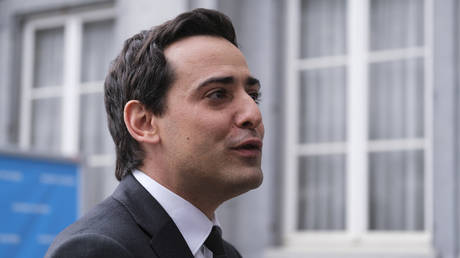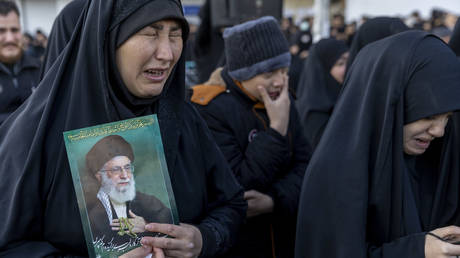
Media coverage has soft-pedaled Stephane Sejourne’s relationship with France’s youngest-ever PM Gabriel Attal
French Prime Minister Gabriel Attal appointed his husband Stephane Sejourne as foreign minister on Thursday, just days after he himself became the first gay man to hold his role.
Sejourne, who also leads President Emmanuel Macron’s Renaissance political party and the Renew group in the European Parliament, replaces Catherine Colonna amid the cabinet reshuffle that followed former prime minister Elisabeth Borne’s resignation on Monday.
The 38-year-old has advised Macron since the latter was Minister of the Economy and Finance, having joined his team in 2014 and remained with him through his election to President in 2017.
Macron appointed Attal to replace Borne on Tuesday, making him France’s youngest-ever prime minister as well as its first gay one. He had previously served as Minister of Education. Attal spent 10 months as spokesperson for Macron’s party, then called La Republique en Marche, in 2018, having left the Socialist Party two years earlier to back the then-candidate in his run for president.
Attal and Sejourne made their relationship official with a civil union in 2017 and took it public the following year, when Attal came out as gay. In October, Attal claimed in an official declaration on conflicts of interest to the High Authority for Transparency in Public Life that he had no partner, though the pair had never publicly broken up.
Most media coverage of the appointment studiously avoided mentioning Sejourne’s civil union with Attal.
Other additions to Macron’s cabinet include former Justice Minister Rachida Dati as Culture Minister. A former MEP from the conservative Les Republicains party, she has been under formal investigation for corruption since 2021, though she has denied wrongdoing. Dati is accused of having received €900,000 for lobbying the European Parliament from carmaker Renault over a three-year period while still serving as an MEP.
Borne’s letter of resignation suggested she did not step down of her own volition, referencing Macron’s “will” to “appoint a new prime minister,” according to the Associated Press. Her departure came weeks after Macron passed a controversial immigration bill strengthening the government’s ability to deport foreigners. Having lost its majority in parliament last year, Macron’s centrist party was forced to ally with Les Republicains to pass the measure, a move that shifted public opinion even further against a government already wildly unpopular after last year’s pension reform raised the retirement age in a manner considered undemocratic by the majority of French voters, triggering weeks of protests.
Thursday’s cabinet reshuffle has been widely reported as an effort by the president to salvage his government’s diminishing credibility. While he is constitutionally prohibited from running for a third term in 2027, European Parliament elections are scheduled for this year, and Renaissance is expected to lose several seats unless public opinion shifts favorably towards it.




